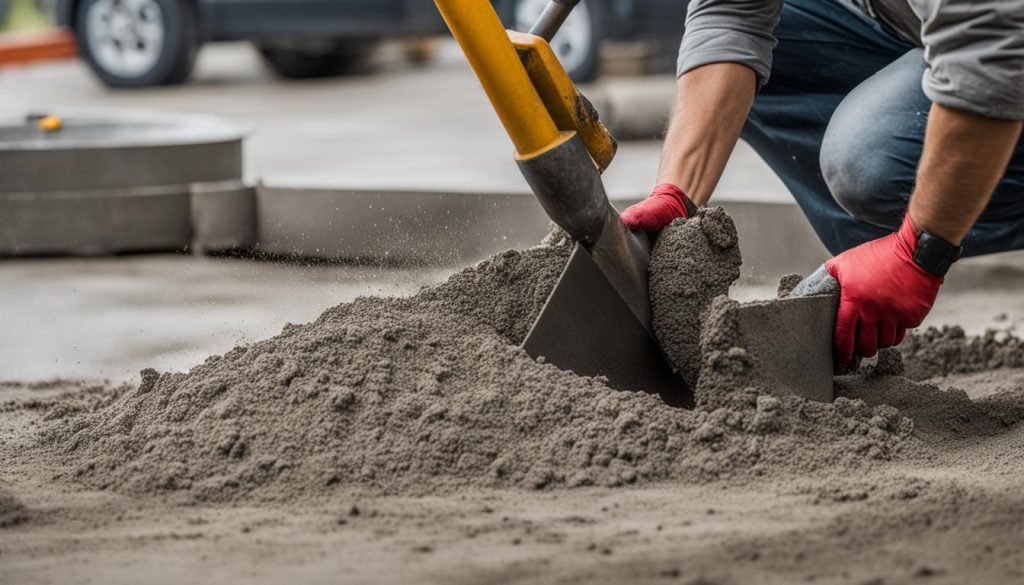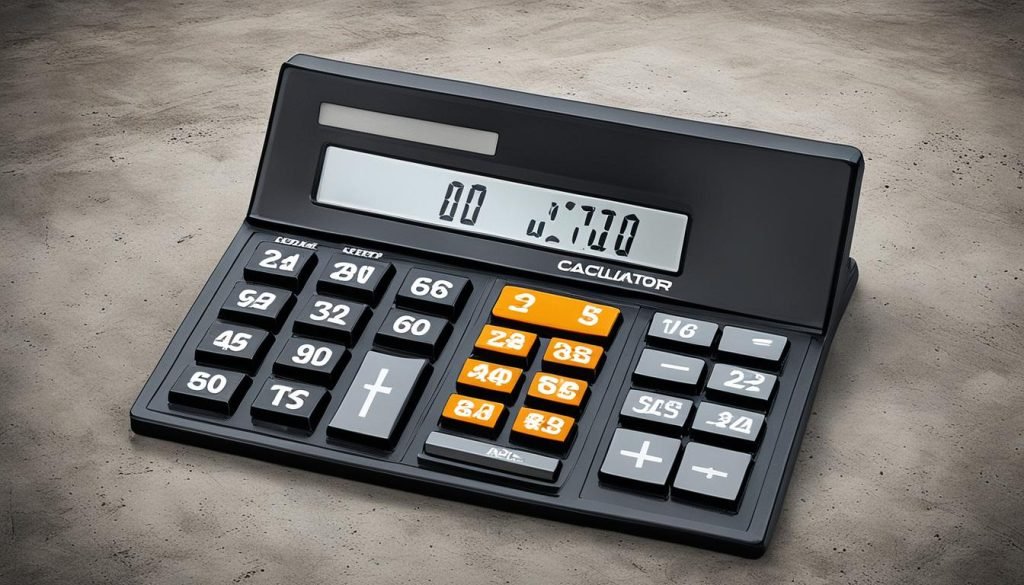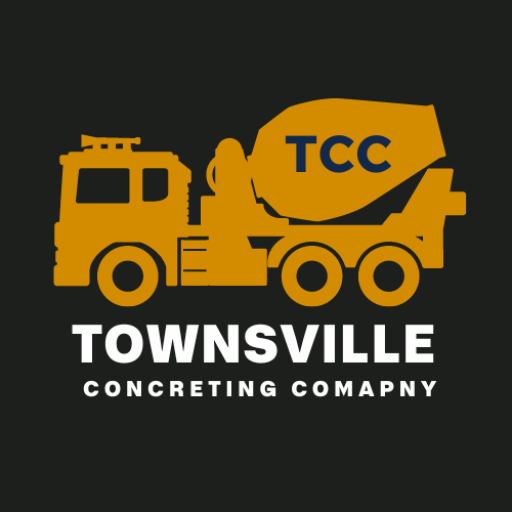Welcome to our comprehensive guide on estimating the cost of concrete. Whether you’re planning a small DIY project or a large-scale construction job, understanding the expenses involved is crucial for accurate budgeting. In this guide, we’ll break down the factors that affect the cost of concrete, provide price ranges for different types of concrete and finishes, explain labor costs in detail, and highlight important considerations for your project. Moreover, if you’re in the process of considering enhancements, Townsville Concrete Works guide on ‘How to Smooth Exposed Aggregate Concrete: Techniques and Tips’ delivers valuable insights.
Key Takeaways:
- Concrete costs can range from $50 to $150 per square meter, depending on factors such as leveling requirements, type of finish, and job size.
- Spray-on concrete, plain concrete, colored concrete, and exposed aggregate are some of the common types of concrete and each comes with its own price range.
- Labor costs for concreting typically average around $70 per hour, but this can vary based on the concreter’s skill level and experience.
- Factors such as site size, excavation, drainage, and accessibility can impact the overall cost of the project.
- Finding a qualified and licensed concreter is essential, and it’s recommended to obtain multiple quotes to establish a benchmark price.
Types of Concrete
When it comes to concrete, there are various types available to suit different purposes and design preferences. Whether you’re looking for a quick and decorative solution or a visually stunning finish, there’s a type of concrete that fits your needs.
Spray-on Concrete
Spray-on concrete is a popular choice for its quick application and versatility. It involves spraying a layer of concrete onto a surface, creating a seamless and even finish. This type of concrete is commonly used for driveways, patios, and pool surrounds. Its decorative design features make it an appealing option for those looking to enhance the aesthetics of their outdoor spaces.
Coloured Concrete
Coloured concrete offers a unique way to transform the look of your walls, both internally and externally. By adding pigments to the concrete mix, you can achieve a wide range of vibrant and subtle hues. Coloured concrete is highly customizable, making it ideal for creating eye-catching features or blending seamlessly with existing aesthetics.
Exposed Aggregate Concrete
Exposed aggregate concrete combines the strength of traditional concrete with the natural beauty of stones. During the pouring process, decorative stones are embedded into the concrete surface and then exposed by removing the top layer, revealing a textured and visually appealing finish. This type of concrete is commonly used for driveways, pathways, and outdoor entertainment areas.
Each type of concrete comes with its own set of costs, which may vary depending on factors such as the size of the project, desired finish, and location. It’s important to consult with a professional concrete contractor to determine the most suitable type of concrete for your specific needs and budget.
Concrete Slab Prices
When it comes to concrete slabs, prices can vary depending on the type of finish you choose. The cost estimation for different types of concrete slabs is as follows:
- Spray-on concrete slabs: $50 – $75 per square metre
- Plain concrete slabs: $60 – $85 per square metre
- Reinforced concrete pathways: $65 – $90 per square metre
- Exposed aggregate finishes: $100 – $150 per square metre
- Decorative stencilled concrete driveways: $100 – $150 per square metre
These prices give you a rough estimate of what to expect when it comes to concrete slab costs. It’s important to note that the final cost may vary depending on factors such as the size of the project, location, and any additional customization options you choose. Consulting with a professional concreter will give you a more precise quote based on your specific requirements.
Choosing the Right Concrete Slab Finish
“The type of finish you choose for your concrete slab can greatly affect the overall appearance and cost of your project.”
When selecting a concrete slab finish, it’s essential to consider both your budget and aesthetic preferences. Plain concrete slabs are a popular and cost-effective option, while exposed aggregate finishes offer a more decorative and visually appealing look. The choice ultimately depends on your desired outcome and the style of your property.
Whether you are looking to spruce up your pathways, driveways, or outdoor areas, discussing your options with a professional concreter will help you make an informed decision that suits your needs and budget.
Labour Costs
The cost of concreting labour is an important factor to consider when estimating the overall expenses of your project. The labour costs can vary depending on the skill level and experience of the concreter.
The industry standard rate for concreting labour is approximately $70 per hour. However, it’s essential to note that less experienced concreters may charge a lower rate, while highly experienced concreters may charge a higher rate.
When hiring a concreter, it’s crucial to find a balance between cost and quality. While a lower rate may seem attractive, it’s important to ensure that the concreter has the necessary expertise to complete the job to a high standard. On the other hand, a higher rate may indicate a more experienced and skilled concreter, providing you with peace of mind and confidence in the final results.
Consider evaluating multiple quotes from different concreters to get a better understanding of the average concreter rates in your area and to find the best fit for your project’s needs and budget.
Factors That May Affect Your Concreting Cost
The cost of concreting can be influenced by various factors. When planning your concreting project, it’s important to consider these factors as they can have a significant impact on the overall cost:
- Site Size: The size of the site where the concreting will take place can affect the cost. Larger sites will require more materials and labor, leading to higher expenses.
- Excavation: If excavation is needed to prepare the site for concreting, it can add to the cost. The extent of excavation required and any associated earthmoving expenses should be considered.
- Drainage: Installation of drainage systems, if required, can impact the overall concreting cost. Proper drainage is essential for preventing water buildup and preserving the integrity of the concrete.
- Accessibility: The accessibility of the concreting site is another factor that can affect cost. If the site is difficult to access or requires additional measures for transporting materials, it may result in higher expenses.
Considering these factors and discussing them with your concreting contractor can help you get a more accurate cost estimation for your specific project.
| Factors Affecting Concreting Cost | Impact on Cost |
|---|---|
| Site Size | Increased size may lead to higher expenses |
| Excavation | Additional costs for site preparation |
| Drainage | Installation costs for drainage systems |
| Accessibility | Potential increase in transportation and logistics expenses |
Having a clear understanding of these factors will help you plan your concreting project effectively and budget accordingly.
What Jobs Do Concreters Do?
Concreters are skilled professionals who offer a wide range of services related to working with concrete. They possess the necessary concreting skills and expertise to handle various concreting tasks and deliver high-quality results.
Concreter Services:
- Mixing and laying concrete: Concreters are responsible for preparing the concrete mixture, ensuring the right proportions of cement, aggregates, and water, and then laying it in the desired location. They have the knowledge and experience to achieve the correct consistency and workability of the concrete.
- Concrete cutting: When modifications or adjustments need to be made to an existing concrete structure, concreters use specialized tools to cut through the concrete accurately and precisely.
- Reinforcing concrete: Reinforcement is crucial to strengthen and support concrete structures. Concreters apply reinforcing materials, such as steel bars or mesh, to reinforce the concrete and ensure its structural integrity.
- Pouring concrete into formwork: Concreters pour the prepared concrete mixture into formwork, which serves as a mold for the desired shape and structure. They ensure that the concrete is evenly distributed and properly compacted within the formwork.
- Creating decorative effects with stencils and stamps: Concreters possess the artistic skills to create decorative effects on concrete surfaces using stencils and stamps. This technique is often used to enhance the visual appeal of driveways, patios, or other concrete areas.
“Concreters bring a unique combination of precision, craftsmanship, and creativity to their work, allowing them to create stunning concrete structures and finishes.”ConcreteExpert
Whether it’s a small residential project or a large commercial undertaking, concreters have the concreting skills and expertise to handle a wide variety of concreting tasks with efficiency and professionalism.
Benefits of Hiring Professional Concreters
Hiring professional concreters for your concreting projects offers several advantages:
- Expertise: Professional concreters have in-depth knowledge and experience in working with concrete, ensuring that the project is completed to the highest standards.
- Efficiency: Concreters have the necessary skills and equipment to complete the work efficiently, saving you time and effort.
- Quality Results: Professional concreters deliver high-quality results, paying attention to detail and ensuring the durability and longevity of the concrete structures.
- Cost Savings: By hiring professional concreters, you avoid potential mistakes or rework that could lead to additional expenses in the future.
When undertaking a concreting project, it’s always advisable to rely on the expertise and services of professional concreters to ensure a successful outcome.
Quote Comparison Table:
| Concreter | Contact | Price |
|---|---|---|
| Concrete Masters | 0400 123 456 | $5,500 |
| Pro Concrete Solutions | 0412 987 654 | $6,200 |
| Superior Concreting | 0422 555 888 | $5,800 |
Can I DIY Concreting?

Concreting is a specialized area that requires the correct qualifications and licenses. It is not recommended for DIY projects unless the individual has the necessary expertise and qualifications.
The Importance of Concreting Qualifications and Licenses
Concreting is a complex task that involves mixing and laying concrete, understanding different types of finishes, and working with various concrete structures. To ensure the quality and safety of the project, it is crucial to have the appropriate qualifications and licenses.
“Concreting is a specialized skill that requires training and experience to execute properly. Without the necessary qualifications and licenses, DIY concreting projects can result in poor construction, compromised durability, and potential safety hazards.”
Benefits of Hiring Qualified Concreters
When hiring a professional concreter with the proper qualifications and licenses, you can expect:
- Expertise: Qualified concreters have undergone training and possess the necessary skills to handle all aspects of the concreting process effectively.
- Knowledge of Regulations: Licensed concreters are familiar with building codes and regulations, ensuring compliance and adherence to industry standards.
- Quality Workmanship: With their experience, qualified concreters can deliver high-quality results, providing durable and long-lasting concrete structures.
- Insurance Coverage: Licensed concreters typically have insurance coverage, offering protection against accidents or damage during the construction process.
Visual Representation of DIY Concreting Risks
Please refer to the image above for a visual representation of the risks associated with DIY concreting without the proper qualifications and licenses. The image showcases potential issues such as uneven surfaces, cracks, and structural instability that can arise from inexperienced DIY attempts.
How Long Does Concreting Take?
The time required to complete a concreting job can vary depending on the size and complexity of the project. Larger projects, such as concreting a pool or driveway, will naturally require more time compared to smaller projects like concreting a single wall.
Several factors influence the timeframe for concreting, including:
- The size of the area to be concreted: Larger spaces will naturally take longer to complete.
- The complexity of the project: Projects that involve intricate designs, patterns, or finishes may require additional time for careful execution.
- The weather conditions: Extreme temperatures, rain, or high humidity can affect the drying time of concrete, potentially prolonging the overall project duration.
Although it’s challenging to provide an exact timeframe without assessing the specific project, here is a rough guide for different concreting jobs:
| Concreting Job | Estimated Timeframe |
|---|---|
| Small to medium-sized concrete slab | 1-3 days |
| Concreting a pool | 1-2 weeks |
| Concreting a driveway | 1-2 weeks |
| Concreting a single wall | 1-2 days |
It’s important to note that these timeframes are just estimates and can vary depending on the specific circumstances of each project. Factors such as the weather, site conditions, and the availability of the concreting team can also impact the overall timeline.
For a more accurate assessment of the timeframe for your concreting project, it’s best to consult with a qualified concreter who can evaluate the scope and provide a detailed timeframe based on their expertise and experience.
Whatever the duration, proper planning and communication with your concreting team will ensure a smooth and timely execution of your project.
Concrete Cost Estimation Calculator

Are you wondering how much concrete you’ll need for your project? Use an online concrete cost estimation calculator to get a rough estimate. These calculators take into account the dimensions and number of slabs to provide an approximate cost for your concrete needs.
By simply inputting the required information, such as project size and desired thickness, you can quickly obtain an estimate of the amount of concrete required. This eliminates the need for manual calculations and allows you to plan your project more efficiently.
Keep in mind that these calculators provide estimations and should be used as a starting point. For a more accurate quote, it is recommended to contact local concrete distributors.
Using a concrete cost estimation calculator is a convenient and time-saving tool that can assist you in budgeting and planning your concrete project. Take advantage of this resource to ensure you have a clear understanding of the concrete quantity and costs involved, empowering you to make informed decisions and streamline your project.
Conclusion
In summary, the cost of concreting projects can vary depending on several factors. The type of concrete, size of the project, labour costs, and other considerations all play a role in determining the overall cost. To get an accurate estimation, it is crucial to take these factors into account and obtain quotes from qualified concreters. The information provided in this guide can serve as a useful starting point for understanding the costs involved.
Concreting is a specialized area that requires skill and expertise, so it is generally not recommended for DIY projects unless you have the necessary qualifications. Hiring licensed and experienced concreters is essential to ensure the job is done correctly and efficiently.
When seeking a concreter, consider calling us to get the best possible quote for your job.
FAQ
How much does concrete cost per square foot?
The cost of concrete can range from $50 to $150 per square metre, depending on factors such as the type of finish, levelling requirements, and the size of the job.
What are the different types of concrete?
Some common types of concrete include spray-on concrete, coloured concrete, and exposed aggregate concrete, each with its own unique characteristics and cost implications.
How much do concrete slabs cost?
The cost of concrete slabs can vary, with spray-on concrete slabs costing $50 to $75 per square metre, plain concrete slabs costing $60 to $85 per square metre, and decorative finishes like exposed aggregate costing $100 to $150 per square metre.
How much does concreting labour cost?
The industry standard rate for concreting labour is approximately $70 per hour, although this can vary depending on the skill level and experience of the concreter.
What factors can affect the cost of concreting?
Factors such as the size of the site, the need for excavation and drainage, and the accessibility of the site can all impact the overall cost of a concreting project.
What services do concreters provide?
Concreters offer a range of services including mixing and laying concrete, cutting and reinforcing concrete, pouring concrete into formwork, and creating decorative effects using stencils and stamps.
How can I find a qualified concreter and get quotes?
Contact us to get connected with a licensed and qualified concreter in your local area.
Can I do concreting myself?
Concreting is a specialized area that requires the correct qualifications and licenses. It is not recommended for DIY projects unless the individual has the necessary expertise and qualifications.
How long does concreting take?
The time required to complete a concreting job can vary depending on the size and complexity of the project. Larger projects may take longer than smaller ones.
How can I estimate the cost of my concrete project?
You can use an online concrete cost estimation calculator that takes into account the dimensions and number of slabs to provide a rough cost estimate. For a more accurate quote, it’s best to contact local concrete distributors.



